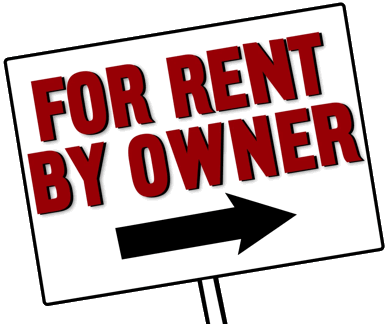The American rental market is hotter than ever before. Whether it’s low housing inventory, the desire to live in more urban settings, or not wanting to deal with a stubborn real estate market, more people than ever are renting their residences. Renting brings a much different burden of responsibility compared to buying, especially when it comes to securing the perfect place.
To be certain you have the best possible rental home or apartment experience, we’ve put together a list of questions to ask when renting a house or apartment. Before you sign any contracts make sure to ask the following questions and check any necessary boxes to be certain you have a proper agreement for your ideal rental. This list isn’t exhaustive, but it is a great start.
Can You Go Over Rent, Deposit, and Utilities?
Any reputable renting outfit should spend a significant amount of time going through your contract or lease agreement. Double-check that the rental price matches up with what you’re told, what type of security deposits are due when you can get them back, and if the landlord or housing complex pays any utilities like power and water. You can also find out about any signing fees or other potential fees.
When asking about rent and utilities steer away from non-refundable deposits or at least know exactly why any deposits can’t be refunded. Remember that the cost of water, electricity, and gas can make a big difference in your monthly expenditures so always factor them in.
Who are the cable and internet providers?
Nowadays, internet is an important part of most people’s daily lives. Knowing who provides cable and internet services will be important to determine if the service meets your needs. It’s also another additional monthly expense that should be factored in. In some cases, landlords or property managers provide one or both services as well. If you’re looking in a rural area, it’s altogether possible the service isn’t available.
What Are the Lease or Rental Terms?
You should have all relevant move-in, move-out, and any other important dates regarding your rental. If you plan on using the rental for a long time look for lengthier lease periods which are normally less expensive than short term leasing options. Figure out when your lease expires and what you should do if you want to renew your lease at the end of the term

How Do I Pay Rent?
You should know how much your rent is, when it’s due, and what methods you can use to pay for rent before you sign any contracts. Also, ask about any late fees and what to do if you accidentally miss a rent payment.
What Can I Do to the Apartment?
You don’t own your rental unit, so you best be sure any changes you make to the rental are allowable. Talk to your landlord or rental company about what’s allowed like hanging artwork, painting, and other personal touches.
How Do Maintenance Requests Work?
Rental owners don’t have to worry about fixing their refrigerator or patching a leaky roof, but you should know how your potential rental’s maintenance request system works. You only want to rent from a proactive leasing company that can provide details on its maintenance system.
What Happens at End of Lease?
Will you be allowed to re-up your lease or will you be required to move out? Is rent expected to rapidly rise for this rental? If you’re planning on living at a rental for a long time, be sure you can stay there without getting gouged on your future leases. Most rental contracts require prior notification before moving out. So, make sure you understand how far in advance to give notice, to avoid any penalties. Also, make sure you find out whether you can go month-to-month at the same rate, or if you need to resign for another long-term contract.
What are Your Parking Policies?
Every rental outfit has different parking guidelines. You might have a dedicated space, a dedicated lot, you might be able to pay more for covered parking, or the apartment might have no dedicated parking. Know your parking situation or risk getting towed.
What is the Guest Policy?
Most apartments and home rentals don’t mind you having people over if it doesn’t interfere with other tenants. However, some specialized rental outfits like senior living centers might have rules and regulations regarding guests. Your guests should also know the parking policy to avoid getting towed.
What’s the Future of the Building / Rental?
You don’t want to lease an apartment if they plan on kicking you out in 6 months for renovations. On the other end, the landlord could be planning several new projects for a better complex. Learn about any potential construction or projects and what it means for your living situation.
What’s Your Pet Policy?
You better be darn sure Benji or Garfield is allowed in the building before signing your lease. Learn about any pet policies including breed or size restrictions and pet deposits so you don’t accidentally violate your lease. If you are planning to get a pet during your lease terms, make sure you let the landlord or property manager know beforehand.
Homes for Rent by Private Owner
Homes for rent by private owners can vary significantly from homes for rent by a realty or leasing company. Where a realty company might have pages of corporate documents and details on their rental, a private landlord might be more relaxed on their paperwork.
Regardless, if the home is for rent by private owner, or by a realty company, you should still ask all the above questions to be certain you’re getting what you paid for. Don’t take a landlords “word for it” either, make sure the answers to your questions are put in writing in the rental agreement. This will save a lot of back-and-forth if there’s ever a disagreement about what was said.
Ask the Questions, Sign Your Rental
There’s a lot of homework to do to find the best rental for you or your family. Don’t hesitate to ask the above questions, pencil in your own questions, and always verify what the landlord is telling you is also on the lease. With these questions and further homework, you’ll lease the perfect rental no matter your needs.





